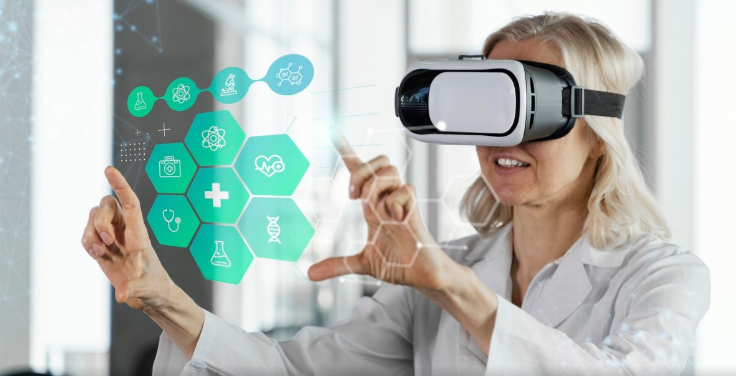Artificial Intelligence (AI) is rapidly evolving, shaping industries and influencing daily life in unprecedented ways. From automation in businesses to personalized recommendations in entertainment, AI is transforming how we work, communicate, and interact with technology. As advancements continue, AI is poised to become even more integral to our future.
The Impact of AI on Different Sectors
1. Healthcare: Revolutionizing Medical Treatment
AI is playing a crucial role in diagnosing diseases, analyzing medical images, and even predicting outbreaks. Machine learning models help doctors detect illnesses like cancer at early stages, improving survival rates. Additionally, AI-powered chatbots and virtual assistants enhance patient care by providing quick medical advice and scheduling appointments.
2. Business and Automation: Enhancing Productivity
Companies are leveraging AI to streamline operations, optimize supply chains, and automate repetitive tasks. Chatbots and AI-driven customer service tools improve user experience while reducing costs. AI-powered analytics help businesses make data-driven decisions, improving efficiency and profitability.
3. Education: Personalized Learning Experiences
AI-powered platforms offer personalized learning plans, adapting to students’ strengths and weaknesses. Virtual tutors and automated grading systems reduce the workload for teachers while enhancing student engagement. With AI, education is becoming more accessible and tailored to individual needs.
4. Transportation: The Rise of Autonomous Vehicles
Self-driving cars and AI-assisted traffic management systems promise safer and more efficient transportation. Companies like Tesla, Waymo, and traditional automakers are developing AI-driven technologies that reduce accidents and improve fuel efficiency. AI is also optimizing public transport systems to reduce congestion and emissions.
5. Entertainment and Media: Redefining Content Consumption
Streaming services like Netflix and Spotify use AI algorithms to recommend content based on user preferences. AI-generated art, music, and even movies are becoming more common, pushing the boundaries of creativity. The gaming industry is also leveraging AI for immersive experiences and realistic simulations.
The Ethical Challenges of AI
As AI becomes more powerful, ethical concerns arise. Issues like data privacy, algorithmic bias, and job displacement need to be addressed. Governments and organizations must implement regulations to ensure AI is used responsibly and fairly. Transparency in AI decision-making is crucial to prevent discrimination and maintain trust.
The Future of AI: What’s Next?
The future of AI holds exciting possibilities. Some anticipated developments include:
- Advanced AI Assistants – Virtual assistants will become more human-like, understanding emotions and context better.
- General AI – Researchers are working towards AI that can perform a wide range of tasks, similar to human intelligence.
- AI in Space Exploration – AI will assist in discovering new planets, analyzing space data, and even controlling robotic explorers.
- Human-AI Collaboration – Instead of replacing jobs, AI will enhance human capabilities, leading to a future of augmented intelligence.
Conclusion
Artificial Intelligence is revolutionizing the way we live and work. While it presents challenges, its potential benefits are immense. By ensuring ethical development and responsible use, AI can create a future where technology enhances human life rather than replaces it. The journey of AI is just beginning, and its impact will continue to shape the world in remarkable ways.


